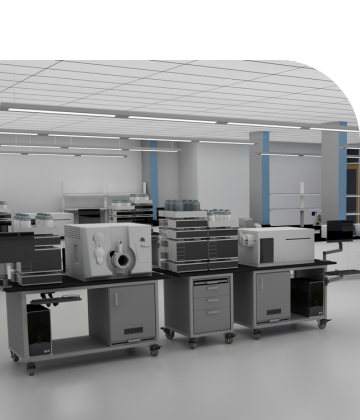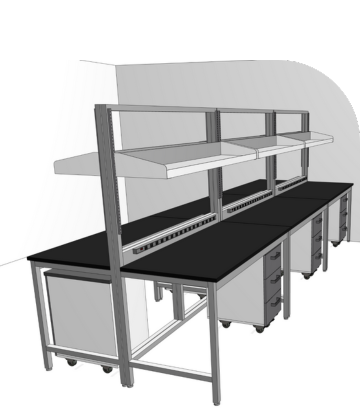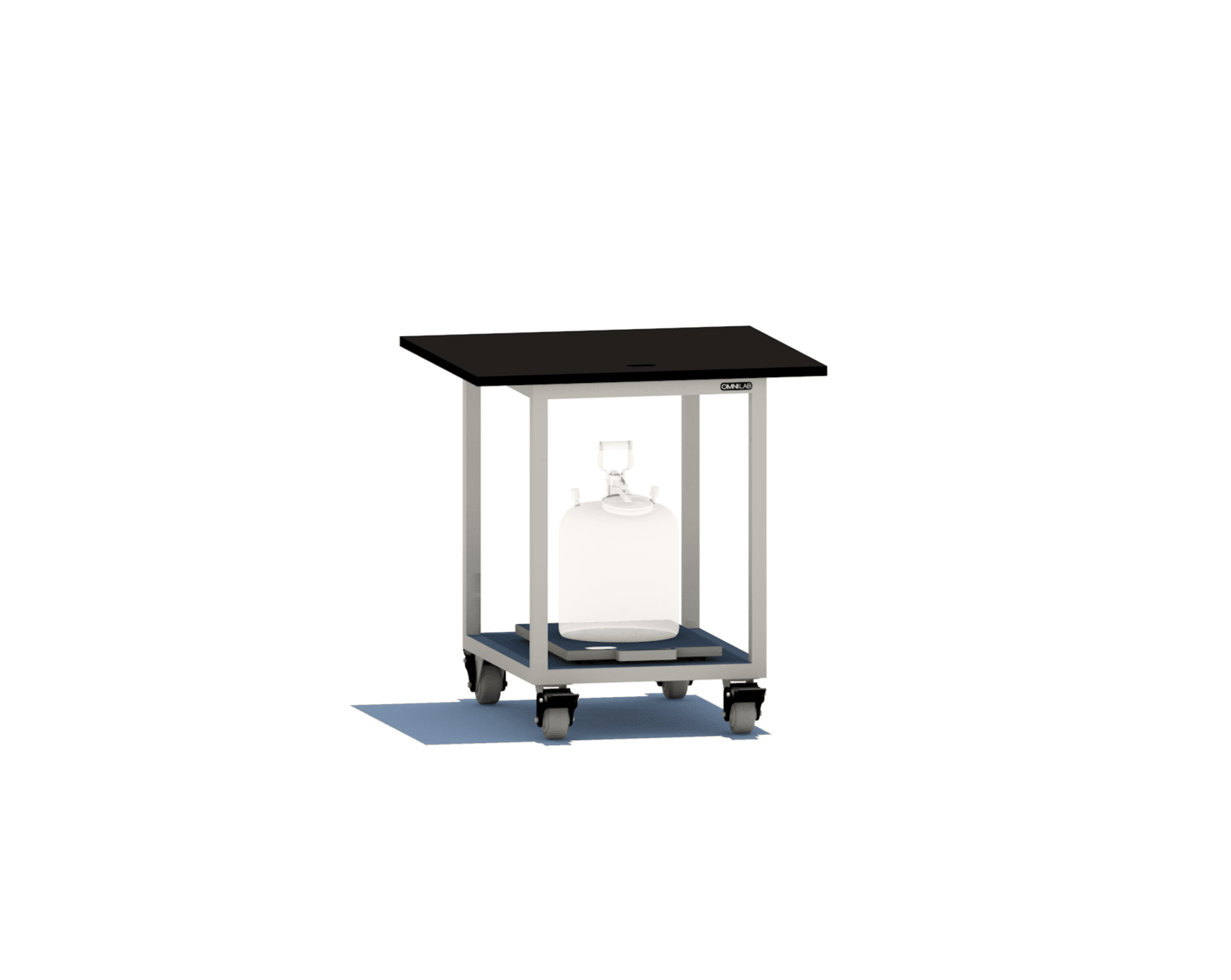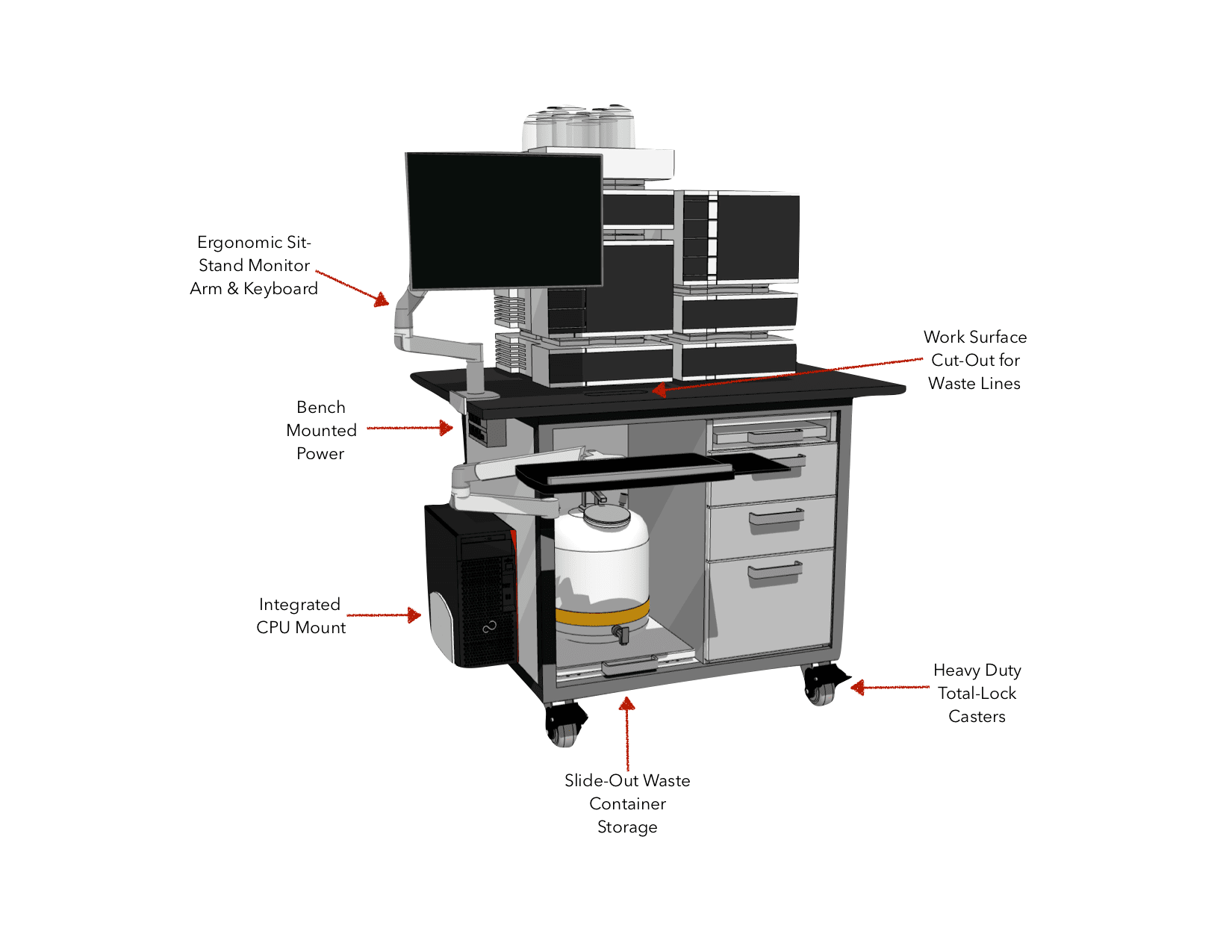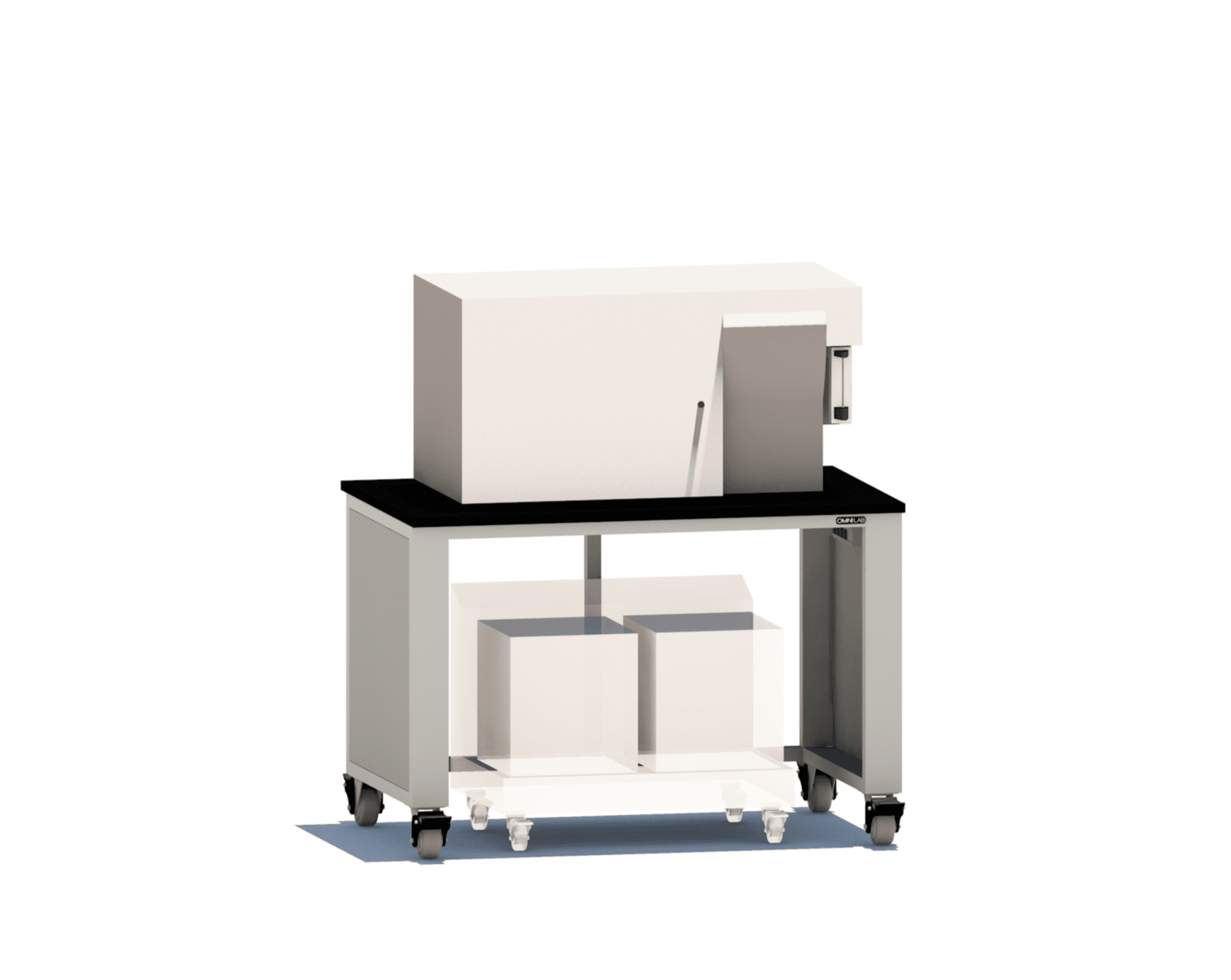Mass spectrometry is an analytical technique used to measure the mass-to-charge ratio of ions. It is widely used in many fields, including chemistry, biology, pharmaceuticals, and environmental science. OMNI Lab Solutions breaks down the process of mass spectrometry and why it is important to have the proper workspace like an Mass Spectrometry bench:
What Is Mass Spectrometry?
Researchers use a scientific instrument called a mass spectrometer to study and identify the chemical makeup of a substance. This process involves breaking down a substance into tiny particles called ions. Ions are sorted based on their weight and electrical charge.
A mass spectrometer's basic components include a mass analyzer, an ion source, and a detector. The ion source produces ions from the sample by ionization. Researchers use electrospray ionization, matrix-assisted laser ionization, and electron ionization.
This process creates a unique pattern of signals. These signals are analyzed to identify the chemical compounds present in the sample. Mass spectrometry helps researchers understand the composition and behavior of substances at the molecular level. It helps identify unknown compounds, determine the chemical composition of a sample, and study the structure and properties of molecules.
Researchers can quantify and identify the chemical composition of a sample based on the mass-to-charge ratio (m/z) of its constituent ions. The process involves several steps:
-
Ionization: The sample is ionized to produce charged ions, typically by electron ionization or electrospray ionization.
-
Separation: The ions are separated based on their mass-to-charge ratio (m/z). Many researchers use an analyzer, such as a magnetic field or a mass filter, which can be a quadrupole, time-of-flight (TOF), or ion trap.
-
Detection: The separated ions are detected. Instruments record the data. Researchers analyze the data to determine the mass and abundance of the ions.
Mass Spectrometry Benches
A mass spectrometry bench is a workspace where mass spectrometry analysis is conducted. This includes a variety of equipment and instruments. Equipment includes the mass spectrometer, sample preparation tools, ionization sources, and data analysis software.
At OMNI Lab Solutions, we produce Mass Spectrometry benches in a variety of configurations. The MS bench can be customized to fit in a dedicated laboratory space. They can also be built to be part of a more extensive larger analytical laboratory with other equipment and instruments. Researchers may design their bench to accommodate specific types of experiments, such as those involving liquid or gas samp. They may be equipped with specialized tools and accessories for those experiments.
We recommend mass spectrometry benches also include protocols and standard operating procedures for conducting experiments. This includes documentation and record-keeping systems for tracking and analyzing data. The mass spectrometry bench is a central component of any mass spectrometry laboratory.
OMNI Lab Solutions specializes in providing the workspace and tools necessary to conduct various experiments and analyze complex data. Our Mass Spectrometry benches help lab technicians conduct their research in a quieter environment. They are built to provide increased space, mobility, flexibility, and accessibility. Our bench systems can support research instruments from leading manufacturers like Thermo Fisher, Bruker, SCIEX, Shimadzu, Agilent, Analytik-Jena, and more.
